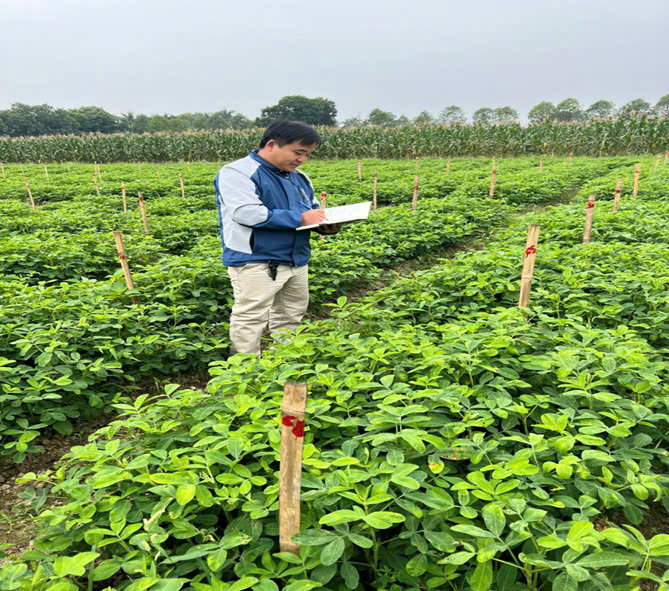(VAN) Research institutes under the Ministry of Agriculture and Rural Development are expected to have better research results when co-operating with enterprises.

With advantages in facilities and human resources, research institutes under the Ministry of Agriculture and Rural Development are expected to have better research results when co-operating with enterprises.
Deputy Minister of Agriculture and Rural Development Le Quoc Doanh on September 15 worked with relevant units on the development of a cooperation project between the ministry’s crop research institutes and private enterprises, particularly those under the Vietnam Academy of Agricultural Sciences (VAAS).
Nguyen Hong Son, Director of VAAS said that 17 out of 19 units of the institute were cooperating with more than 50 enterprises which are companies and corporations specializing in the production and trading of plant seeds, agricultural materials, import and export of agricultural products in Vietnam, for examples Vinaseed, Thaibinhseed, Doveco and Loc Troi.
The main areas of the cooperation included investment in research and development, supports to technology research and development, production links, transfer of copyright, consultation contract and technology transfer, he said.
Besides visible advantages, there are still some obstacles in the co-operation between scientific research units and enterprises, Son said.
Specifically, co-operation programs were still at a short-term, partial level, he said, adding that enterprises often asked for immediate results to increase the efficiency of their production while many pieces of research could not generate results from the beginning stage.
“Other difficulties were that many enterprises are operating in a small-scale and unsustainably and they face obstacles relating to a legal corridor in cooperation,” Sơn said.
Deputy Minister Le Quoc Doanh said that enterprises now had a huge demand for co-operation with research units which had advantages in equipment and human resources.
Meanwhile, enterprises had advantages in identify market demand and expand markets for new products. Thus, the cooperation between research units and enterprises could pave the way for mutual success.
However, Doanh said that their co-operation programmes were not in-depth and practical as expected.
“To get more effective co-operation, it is necessary to develop specific regulations on capital contribution and benefit-sharing,” Doanh said.
Pilot co-operation programmes should be carried out at major research units in key products like rice, corn or fruits.
Enterprises with proper demand, resources and will be prefered to join such pilot programmes.
The pilot programmes would be assessed to withdraw experiences and lessons learnt. Then, more co-operation programmes will be implemented.
Source: Nongnghiep.vn








